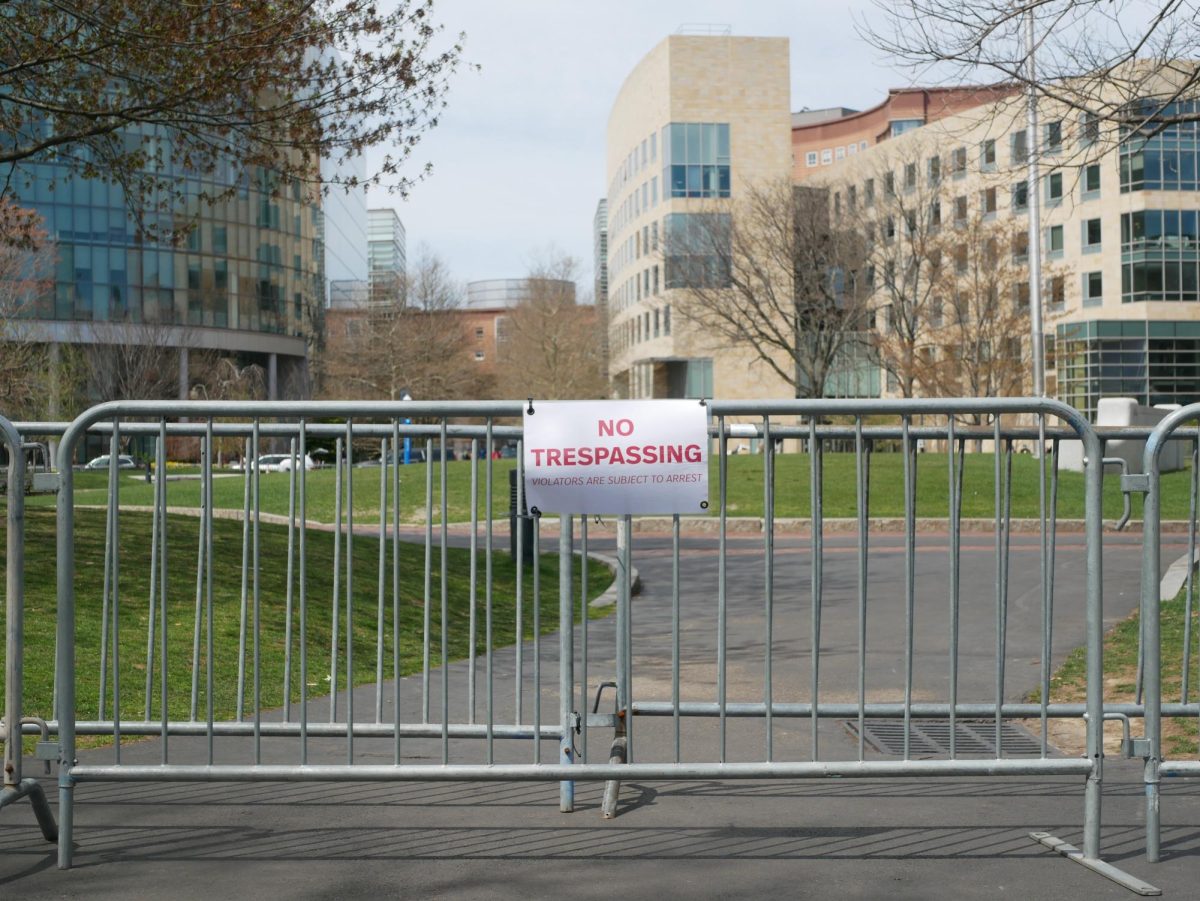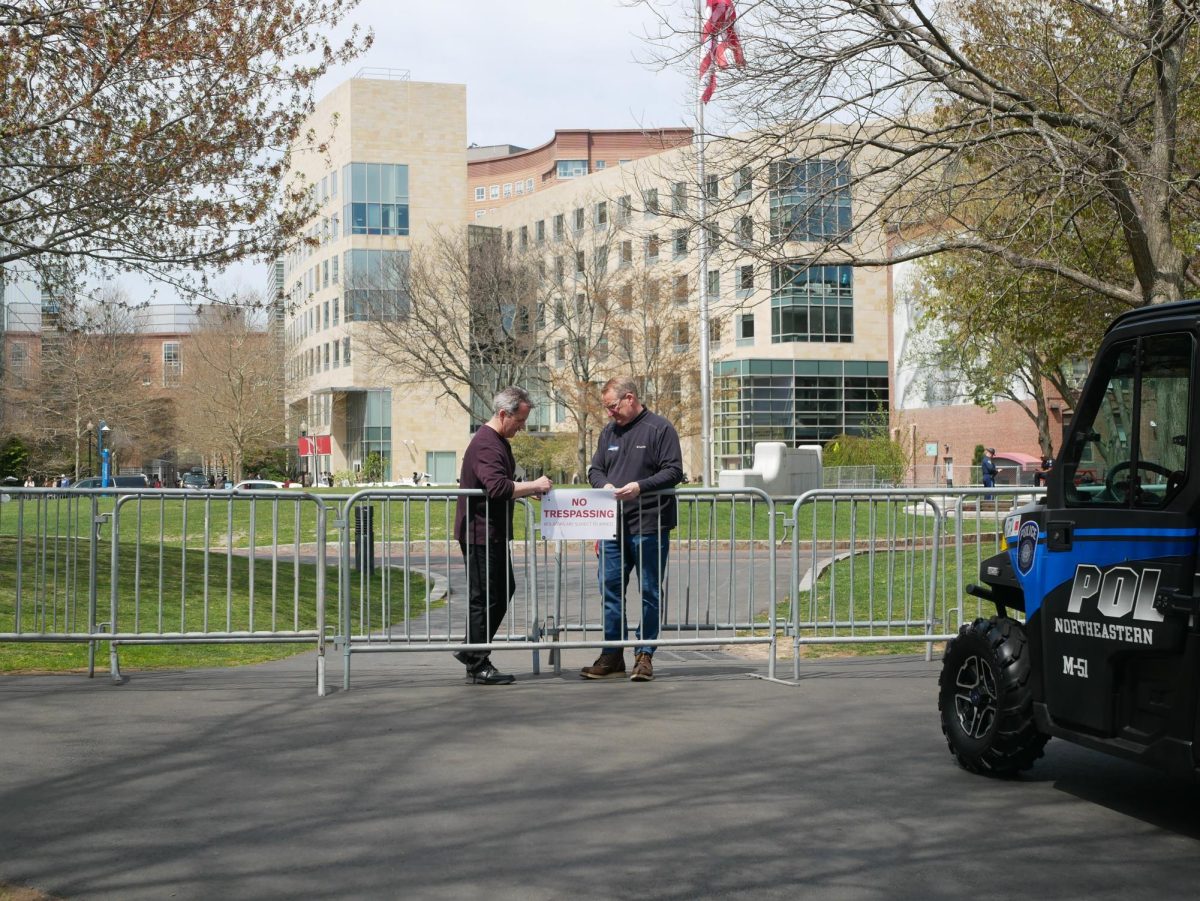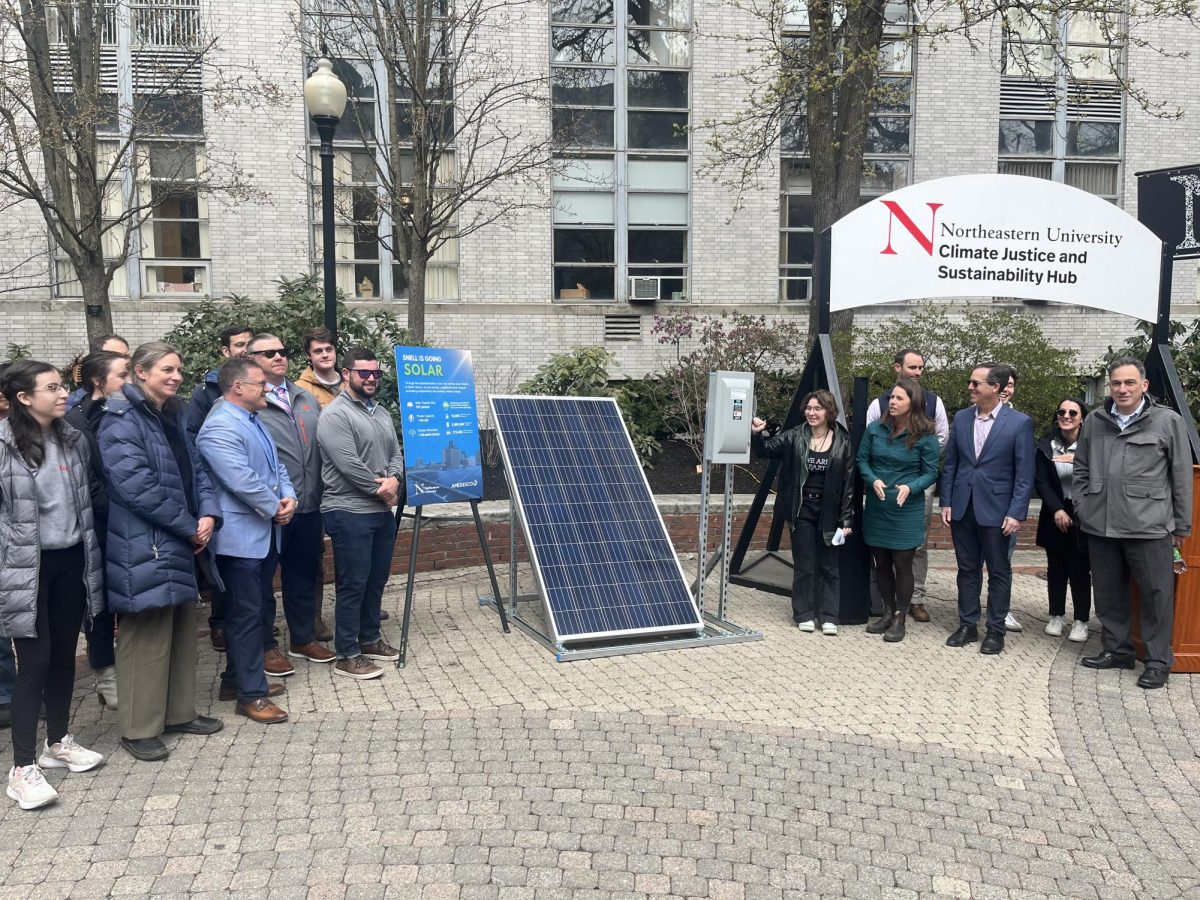By Steven Stites
Thirteen Northeastern undergrads in the National Guard and Reserves have been called to active duty in the last few weeks as war with Iraq looms on the horizon. With each passing day, that number continues to increase.
In the College of Criminal Justice alone, eight students have been called into active duty. Northeastern has responded by implementing the same policy it utilized in the last military mobilization of this magnitude, the 1991 Gulf War. The policy is intended to cater as much to the students as possible.
“Anytime in the quarter, a student is called and activated, he’s purged of his record,” said Skip McCullough, dean of the department of criminal justice. “It’s as if he never attended in the first place.”
The timing of the call-up can affect a student’s options.
“If it’s late in the quarter, it may be wise for students to work with the faculty to speed up the process, and see if they can get incompletes,” said Peggy Fletcher, Dean of the College of Business.
Fletcher said it is considered a “circumstance beyond your control,” similar to a medical leave of absence.
“This enables you to take a quarter off, if you need to,” she said.
The pre-paid tuition is put into an account for students. It can be used to pay for classes in the future, or refunded per request.
“The university is being very generous,” McCullough said.
This includes trying to insure that students who are called into active service do not lose their chances at housing.
“We have linked [the information of students who were called] with housing, so students haven’t been penalized in the lotto,” said Registrar Linda Allen.
The possible war has struck Northeastern even harder this year than it did in 1991, and many expect more of the same to come.
“Desert Storm happened and was over very quickly,” McCullough said. “Some students’ orders were rescinded.”
Allen speculated patriotism could be behind the increase in intensity.
“There are probably just more people doing reservist activities,” she said. “Maybe certain people, since September 11, have been more active.”
The two functions of the Reserves and National Guard are to fight abroad and to replace military people so functions in the United States can continue.
“Most [students called up] replace units, but it depends,” McCullough said. “I talk to parents, and one of them said their son was in Kuwait.”
Where the students will end up can vary based on special skills, such as the ability to speak several languages. Captain Nina Richard of Northeastern’s ROTC program emphasized leadership skills as key to the military experience.
“We teach our students how to work through fear and be leaders,” she said.
Reservists are taught to use their sense of duty to overcome any second thoughts that may creep into their minds.
“No one wants to leave their schools, their homes, their girlfriends,” McCullough said. “But they signed up, so they have to follow through with it.”
Their training can also soothe doubts.
“This is the kind of thing you prepare for in training,” said middler Craig Shames, an ROTC student. “It’s a good opportunity for them, and they’ll serve us well.”
Only reservists can be called into active duty. ROTC students cannot be called to service, since they have not gone through the many levels of training needed to join the reserves. The university does not keep record of the amount of reservists at Northeastern.
Reservists will serve, on average, about a year, but that can vary.
“If all hell breaks loose and things go radically wrong, their obligation is six years,” McCullough said.
In the meantime, the university will attempt to cater to their needs as much as possible.
“The important thing is that we have a staff of advisors assigned by departments,” said Bruce Ronkin, interim associate dean of the College of Arts and Sciences. “As students come in, we have advisors to see them and make the transition as smooth as possible.”










